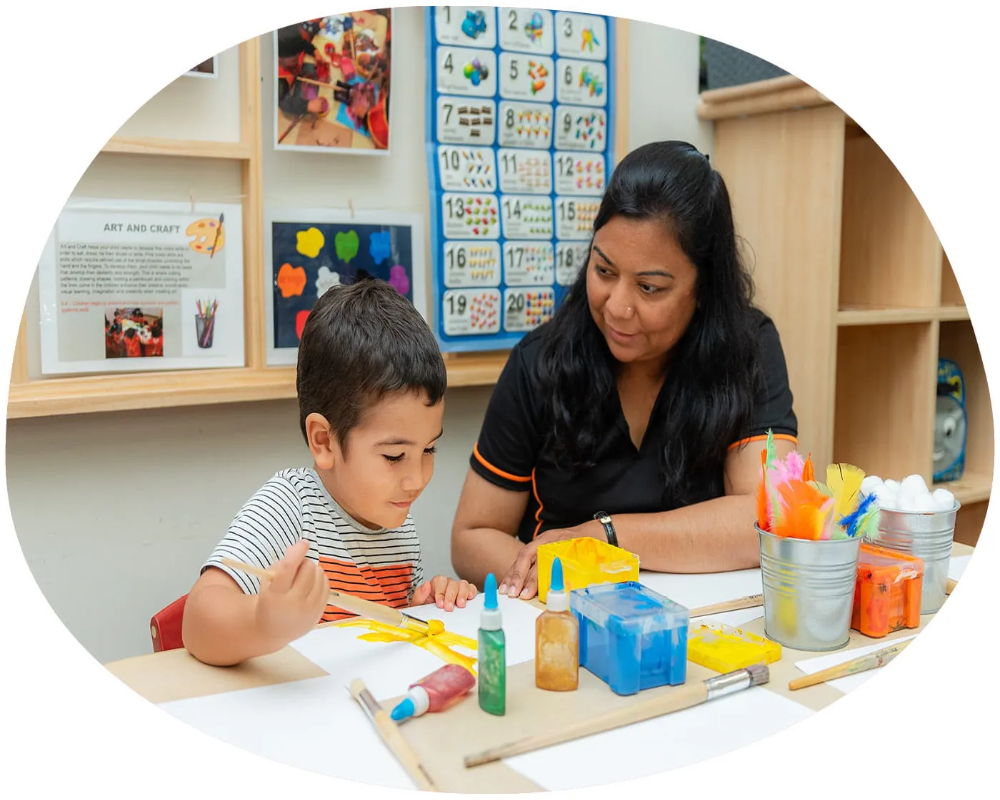What are Remedial Classes?

Source: evelynlearning
What are Remedial Classes?
Remedial classes effectively help in bridging the learning gaps that many learners face in their academic flight. These individualized sessions are designed to meet the individual needs of students who scuffle with certain subjects or concepts.
By centring on the aspects where a learner needs the most backing, remedial classes aim to strengthen their comprehending skills, ensuring they are at the same level with their peers. These classes are not only focus on re-iterating content; but also provide a supportive environment where students can rebuild confidence in their capabilities and attain academic success.
Remedial Classes Caters to:
- Students who have difficulty understanding certain academic concepts or subjects.
- Learners who have fallen behind their peers in specific areas of academics.
- Individuals who require additional support to grasp the standard curriculum.
Major Objective of Remedial Classes:
- To provide targeted, personalized instruction that addresses specific learning gaps.
- To enhance the academic confidence and performance of students who need extra help.
- To ensure that all students have a solid understanding of fundamental concepts, enabling them to progress successfully in their journey.
Table of Content

Source: communitykid
Remedial Education Meaning
Education has an expansive range, encompassing innumerable teaching techniques and approaches to provide to the varied needs of learners. One such method is Remedial Education, a term that often tops in discussions about academic support and individualized learning. In this blog, we will delve into the meaning of Remedial Education and explore its other synonymous terms.
What is Remedial Education?
Remedial Education refers to a specific type of instruction designed for students who are struggling to meet standard academic benchmarks.
This approach:
- Targets Gaps in Knowledge: It identifies and addresses the specific areas where a student is facing challenges.
- Personalized Approach: Remedial Education tailors teaching methods to suit the individual needs of each student.
- Builds a Strong Foundation: The primary goal is to strengthen foundational knowledge, making advanced learning more accessible.
Other Names for Remedial Education
While Remedial Education is a widely used term, it is known by several other names, each highlighting a different aspect of this educational approach.
These include:
- Remedial Classes: This term is often used in school settings where special classes are organized for students needing extra help.
- Remedial Tutoring: This refers to one-on-one instructional support, typically provided outside the regular classroom setting.
The Importance of Remedial Education
The significance of Remedial Education cannot be overstated.
It plays a crucial role in:
- Bridging Learning Gaps: It helps students catch up with their peers by addressing their specific learning deficits.
- Boosting Confidence: As students overcome their academic hurdles, they gain confidence in their abilities.
- Ensuring Long-Term Academic Success: By laying a solid foundation, Remedial Education paves the way for future academic achievements.
Remedial Classes or Remedial Tutoring are synonymous to Remedial Education. This is crucial educational strategy. It is personalized to support students who are struggling academically by assisting them with the essential tools and help to succeed. Its individualized nature make sure that every student gets the attention and direction they need, highlighting its worth in the educational field.
Get more details about the course on +919321024137 / +919869866277.
To download our Special Education Course Brochure, Click Here.
Benefits of Remedial Classes
The concept of remedial classes has gained significant traction in the field of education, offering a tailored approach to learning that caters to individual needs. These classes are predominantly valuable for learners with different disabilities, as they bind gaps in understanding and skills. The advantage of remedial classes are multiple, particularly when it comes to supporting students with disabilities in both education and life skills.
Academic Support for Diverse Learning Needs
Customized Learning Experience
Remedial classes are structured to cater to the unique learning styles and paces of each student. This personalized approach is crucial for students with learning disabilities such as dyslexia, where traditional teaching methods may not be effective.
Strengthening Foundational Knowledge
For students with developmental disabilities, such as Down syndrome, remedial classes help in reinforcing basic concepts. This solid foundation is essential for future academic success.
Enhanced Focus on Difficult Areas
Students with Attention Deficit Hyperactivity Disorder (ADHD) often struggle with concentration. Remedial classes provide an environment where they can concentrate better, with fewer distractions and more focused instruction.
Use of Specialized Tools and Techniques
Remedial classes often employ specialized tools and techniques, like speech therapy for students with speech and language disorders, making learning more accessible and effective.

Source: istockphoto
Life Skills Development
Building Confidence and Independence
Students with disabilities, such as autism spectrum disorders, often face challenges in social interactions and independence. Remedial classes help these students develop confidence and autonomy, both in and out of the classroom.
Improving Communication Skills
For students with hearing impairments, remedial classes can include sign language training, enhancing their ability to communicate effectively.
Cognitive and Emotional Support
Remedial classes provide a supportive environment where students with emotional and behavioural disorders can learn coping strategies, aiding in their overall emotional and cognitive development.
The benefits of remedial classes are extensive and vital. They not only address specific academic challenges faced by students with disabilities but also equip them with essential life skills. By providing targeted support, remedial classes play a crucial role in fostering a more inclusive and effective educational landscape. For students with disabilities, the advantages of remedial classes in both academics and life skills are invaluable, paving the way for a more successful and independent future.
Get more details about the course on +919321024137 / +919869866277.
To download our Special Education Course Brochure, Click Here.
How to set a Remedial Classroom?
Creating an effective remedial classroom is a task that requires thoughtful consideration and planning. In this guide on “How to set a Remedial Classroom,” we will explore the essential elements that contribute to a conducive learning environment, specifically tailored for remedial classes.
Physical Setup of a Remedial Classroom
Comfortable Seating Arrangements
Comfort is key in a remedial classroom. Opt for chairs and tables that are ergonomically designed to support extended periods of learning. Ensure that the furniture is adjustable to accommodate different student needs.
Appropriate Lighting
Good lighting is crucial. Natural light is ideal, but if that’s not possible, ensure that the classroom is well-lit with soft, eye-friendly artificial lights.
Noise Control
A remedial classroom should be in a quiet location, away from the hustle and bustle of the main school activities. This minimizes distractions and aids concentration.
Learning Aids and Resources
Equip the classroom with necessary learning aids such as whiteboards, projectors, and educational materials that are specifically designed for remedial teaching.
Technology Integration
Incorporate technology where appropriate. This can include computers, tablets, or interactive software that supports the remedial curriculum.
Key Points to Remember in “How to set a Remedial Classroom”
Do’s
- Personalize the Space: Make the classroom inviting and personalized. Display student work, inspirational quotes, or educational posters.
- Organize for Accessibility: Keep the classroom organized. Ensure that all materials are easily accessible to all students.
- Create a Supportive Atmosphere: The ambiance should be welcoming and supportive, fostering a sense of safety and encouragement.
- Flexibility in Seating Arrangement: Be open to changing seating arrangements based on the activity or student needs.

Source: alleducationschools
Don’ts
- Avoid Overcrowding: An overcrowded classroom can be overwhelming and counterproductive for remedial classes.
- Don’t Ignore Individual Needs: Every student in a remedial class has unique needs. Evades one approach for all.
- Avoid Rigid Scheduling: Flexibility in scheduling is important in a remedial classroom. Don’t stick to rigid timetables that don’t accommodate individual student needs.
- Don’t Underestimate the Power of Feedback: Avoid neglecting regular and constructive feedback, which is crucial for student improvement.
Understanding “How to set a Remedial Classroom” effectively is about creating a space that is conducive to learning, tailored to individual needs, and equipped with the right resources. Keep in mind that the goal of remedial classes is not just to cover curriculum gaps but to build confidence and encourage a love for learning.
Remedial and Enrichment
In the realm of education, the terms “Remedial and Enrichment” often emerge as key approaches in catering to diverse student needs. These methods are particularly significant for students with various disabilities, offering tailored support and advanced learning opportunities.
The Significance of Remedial Classes
Tailored Learning
Remedial classes provide individualized attention, crucial for students with learning disabilities such as dyslexia, ADHD, and autism. These classes break down complex concepts into manageable segments, making learning more accessible.
Skill Building
They focus on strengthening foundational skills in reading, writing, and mathematics. For example, students with dyscalculia benefit from specialized techniques in understanding mathematical concepts.
Boosting Confidence
Students struggling academically often face low self-esteem. Remedial classes help rebuild their confidence by ensuring they grasp core concepts.
Bridging Gaps
For children with processing disorders, remedial education acts as a bridge, connecting them to the standard curriculum at a pace suitable for their learning style.
Enrichment beyond Standard Curriculum
Enrichment programs go hand-in-hand with remedial education. While remedial classes address learning gaps, enrichment activities push students to explore beyond the standard curriculum. This is particularly beneficial for students with disabilities, as it helps uncover and nurture their unique talents and interests, often overlooked in traditional classroom settings.
Integrating Remedial and Enrichment for Holistic Development
Combining Remedial and Enrichment strategies can be transformative. For instance, a student with dyslexia might attend remedial reading classes, coupled with enrichment activities like creative writing or literature clubs, fostering a love for language beyond basic literacy skills.
Educational strategies chiefly focusing on Remedial and Enrichment approaches are vital tools that diagnose and tailor to the distinctive learning needs of each learner. By integrating remedial classes into our education structure, we provide a reassuring framework that lets all students, irrespective of their challenges, to enhance and reach their full potential.
Embracing the benefits of remedial classes can significantly enhance the learning journey of students with diverse needs. At Vidhyanidhi Education Society, we are committed to providing such specialized educational support. Our programs are tailored to empower students, bridging gaps and fostering academic excellence. We invite you to explore the enriching opportunities at Vidhyanidhi Education Society, where we strive to create an inclusive and nurturing educational environment for every learner.
“Join us at Vidhyanidhi for a transformative learning journey in Remedial Classes!”
Get more details about the course on +919321024137 / +919869866277.
To download our Special Education Course Brochure, Click Here.
FAQs
What is Remedial Teaching Center?
A Remedial Teaching Center offers specialized instruction to help students overcome learning difficulties and catch up academically.
What does Remedial Tuition Mean?
Remedial tuition refers to personalized teaching aimed at helping students with learning challenges to improve in specific areas.
Where Remedial Teaching Courses are Available?
Remedial teaching courses are available at institutions like Vidhyanidhi Education Society, which offers Special Education courses tailored for this purpose.




